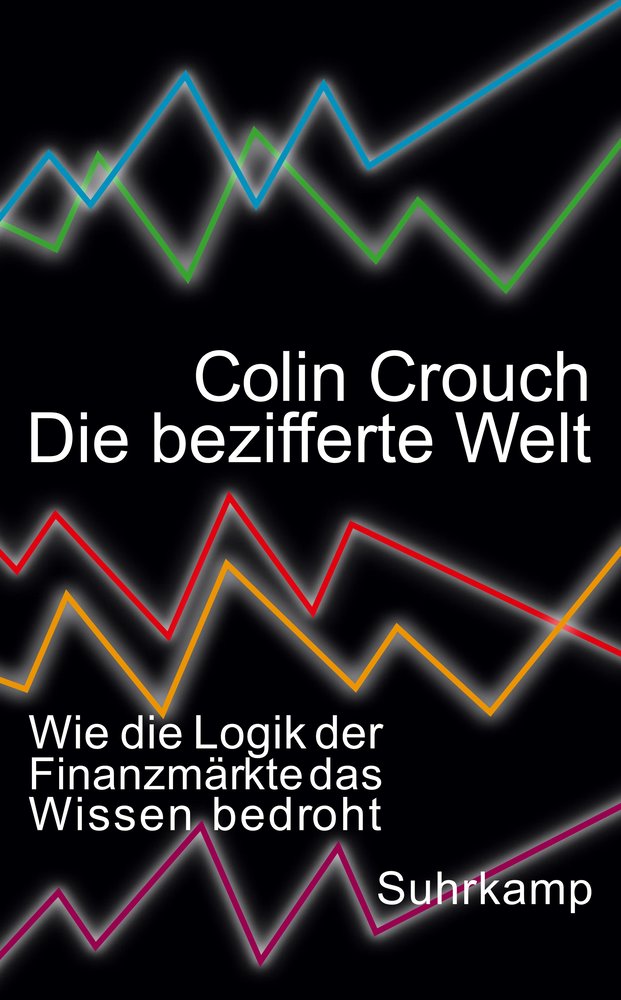Ein Staat, der seinen Ärzten 55 Pfund für jede gestellte Demenzdiagnose versprechen will. Firmen, die die Warnungen von Wissenschaftlern und Ingenieuren ignorieren und Sicherheitsmängel nicht beseitigen, weil ihnen die Beseitigung zu teuer erscheint. In den letzten Jahren ist deutlich geworden, dass die Logik des Neoliberalismus trotz der Krise weiterhin auf dem Vormarsch ist. Colin Crouch zeigt, wie sie sich auf alle Lebensbereiche ausdehnt: Schulen, Krankenhäuser und Polizei werden im Rahmen des großen Zahlenspiels umstrukturiert und dem Diktat der Kennziffern unterworfen; aus Studierenden und Fahrgästen sollen Kunden werden, die agieren wie Rechenmaschinen. Auf dem Weg in die »Informationsgesellschaft« bleibt eine zentrale Ressource auf der Strecke: das Wissen selbst.
Colin Crouch zeichnet nach, wie der Neoliberalismus alternative Formen des Wissens und der Expertise korrumpiert und letztlich unsere Gesellschaften gefährdet.


